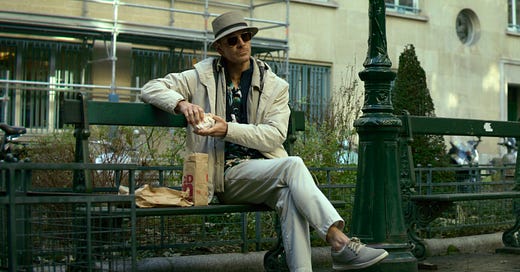This is Boy Movies, a newsletter about movies for boys and everyone else, written by me, Allison Picurro. You won’t be hearing from me in today’s issue, but you’re getting something EVEN BETTER: a dispatch from Nicholas Russell, noted friend of the newsletter and friend to me in my life. The other day, Nicholas pitched me a piece on The Killer, the latest film from David Fincher (Fincher February is a state of mind and will not be constrained by the limitations of the calendar year), which I gave him the enthusiastic go-ahead to write before either of us had even seen the movie, mostly because I was confident that he would bring the party. And he did! I am on record as being a huge fan of Nicholas’s writing, but I especially love this piece and I know you will too. Enjoy!
[“I Know It’s Over” by The Smiths plays on headphones]
In some ways, it was inevitable for a ch…
Keep reading with a 7-day free trial
Subscribe to Boy Movies to keep reading this post and get 7 days of free access to the full post archives.



